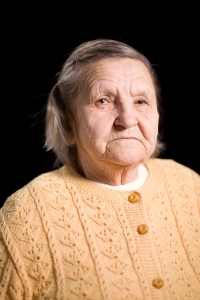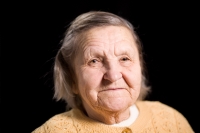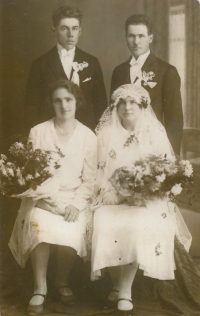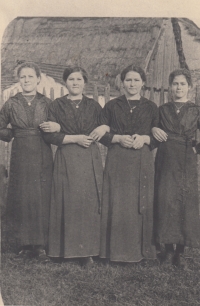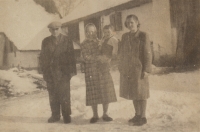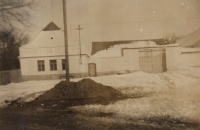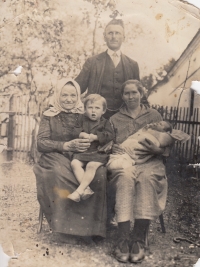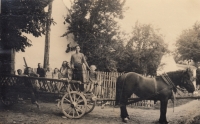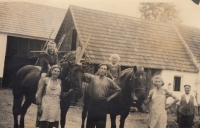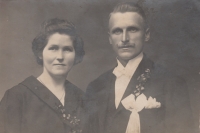Collectivization divided people in the countryside

Download image
Anna Zasadilová, née Kovářová, was born on January 18, 1934 in the South Bohemian village of Hvozdno, where her parents owned a 15-hectare farm. In 1949, the witness graduated from a nine-year primary school and began working on her parents’ farm. After the communists took power in February 1948, farmers in the village faced attempts at collectivization, were faced with high demand, and bullying by Bolshevik apparatchiks. In 1954, Anna married Jan Zasadil and their daughter Hana was born. The husband also came from a peasant family in Hvozdna, and with his parents cultivated twenty-four hectares of land. In February 1956, the Communists confiscated all the assets of the Zasadil family and the whole family had to move out of the village. This definitely broke the resistance of the peasants in Hvozdno to forced collectivization. Other villagers, including Anička’s father, joined the United Agricultural Cooperative (JZD). Anna, her husband and his parents spent the next ten years at the Světlík state farm near České Budějovice. In 1957 their son Jan was born, seven years later Jiří. In 1966, the family moved back to her home village, where Anna worked at the local collective farm. She and her husband raised three children. After 1989, the Zasadils regained their property in restitutions. In 2020, Anna Zasadilová lived on her farm in Hvozdno.
